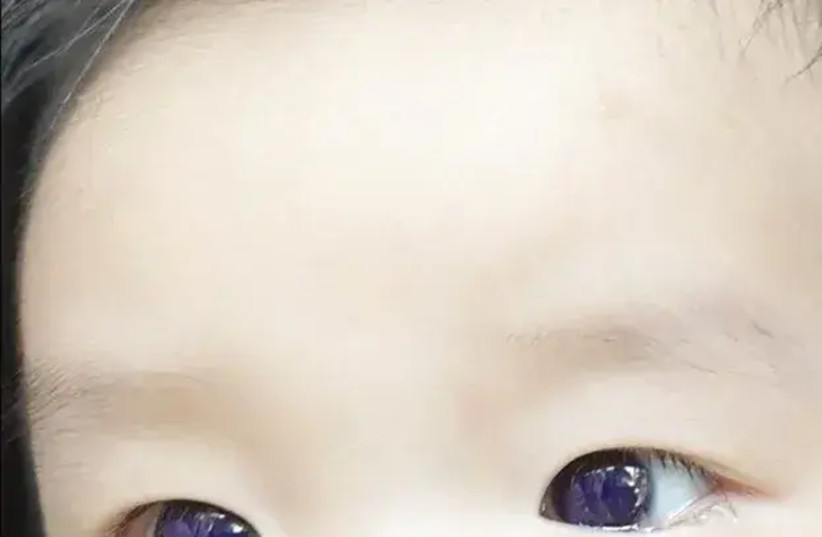We've heard of some unusual phenomena related to corona and its treatments, but this one takes the cake.
A six-month-old boy's eyes have undergone a peculiar transformation, turning a striking shade of blue, believed to be a rare complication of corona treatment.
A study published in Frontiers in Pediatrics sheds light on this extraordinary occurrence.
What happened?
Initially, the child presented with a cough and fever, and an antigen test confirmed his corona diagnosis. Doctors prescribed a Japanese medication called Favipiravir, commonly known as Avigan, typically used for flu treatment. While evidence suggests this antiviral drug has limited positive effects on patients in the early stages of corona, studies indicate potential benefit for hospitalized patients under the age of 60.
Though mild diarrhea and elevated blood uric acid are more commonly associated with favipiravir usage, the boy's mother noticed his eyes turning bright blue 18 hours after initiating treatment, particularly when exposed to sunlight.
This rare side effect has been reported previously, even in a 20-year-old man. In both cases, eye color returned to normal upon discontinuation of treatment.

The published case also mentions that favipiravir has been observed to lighten human hair and nails.
This effect may be attributed to the drug's metabolites or other components like titanium dioxide and yellow iron oxide.
What did the research team say?
The research team noted that studies have shown that the active metabolite of favipiravir is present in human plasma and that there is a direct correlation between its concentration and the intensity of radiation.
Further laboratory investigations revealed that the drug triggers the spontaneous emission of light from a molecule. In light of these findings, the team raises concerns about the safety and effectiveness of favipiravir in corona treatment.
The doctors concluded: The reported adverse event, although rare, must be taken seriously and closely monitored in future cases.
They also said additional studies are needed to ascertain the prevalence of these adverse effects and their potential long-term impact on the health of the corneal.
